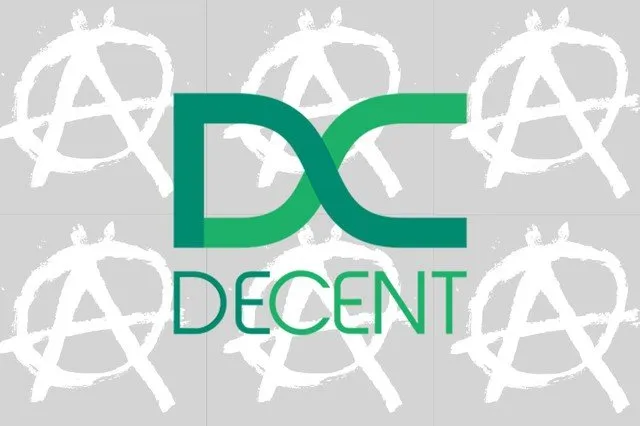
I was talking to a friend and fellow anarchist recently when I started telling him about DECENT, a new cryptocurrency I've been working with. It essentially allows for blockchain-based content ownership and distribution. Content stored on its P2P cloud network may optionally be made available only to paying consumers, either for trivially-small microtransactions or typical song/movie/other media prices.
Now, I'd like to start out by saying that DECENT is not a Steemit competitor. DECENT is more like YouTube, Netflix or Steam (the gaming platform), whereas Steemit functions more like Reddit or a social media platform. The only overlap is in text content, which DECENT also allows in any chosen format, but I think they're going to have very different audiences. I also work for NewsBTC, for example, but I'm also still here
My friend's real objection was with the idea of intellectual property, a concept which has been horribly abused by the mainstream music industry. When many anarchists hear "intellectual property," they think of high-powered lawyers suing teenagers for millions of dollars. As a long-time fan of the Pirate Bay, myself, I am totally sympathetic to that view, but DECENT is nothing like the RIAA.
The Non-Aggression Principle
The difference between DECENT and traditional intellectual property initiatives is that DECENT doesn't require a central authority for enforcement. There will be no lawyers or men with guns. Content on DECENT is encrypted, broken into pieces, and distributed randomly across the network, making it impossible to retrieve in its original form. If it's not free, it is accessible only to those with a valid private key (paying customers).
One could, of course, pay to acquire content and then copy it as it streamed to your computer. For text content, this would be easy, but quality will suffer for multimedia. In the far future, with interactive content like video games, that won't be possible, at all, as you could only record the output and not the game's logic and code, itself. Even if you could copy everything, there would never be serious conflict over who the original owner was, as it's recorded on the blockchain (which we all know is secure).
At worst, one person could claim another uploaded his or her content before he or she got the chance, but that's not an issue DECENT would ever get involved with, and it's something that already happens frequently, anyways. The DECENT Foundation that oversees development and promotion will never have any incentive to attack consumers or participate in such efforts, even if a glitch in the system occurs.
Basically, this is all voluntary. You can still put your music on the Pirate Bay, if you want. The traditional world of intellectual property is involuntary because distribution and advertising are controlled by media conglomerates, but with DECENT you do not require a middleman. You can directly record yourself as the original author of something on the DECENT blockchain--whether it's open source or proprietary--and if you choose to charge for accessing it, you will keep almost all of the revenue.
If you do start to find that your favorite content is harder for you to acquire, it will beg the question: what kinds of artists are you following? When I go on YouTube, if I find a song I used to like is no longer accessible, often times it just makes me think less of the band. As middlemen in the publishing industry are increasingly rendered obsolete, such reasoning will only become more valid. There are plenty of successful artists who already understand this paradigm shift.